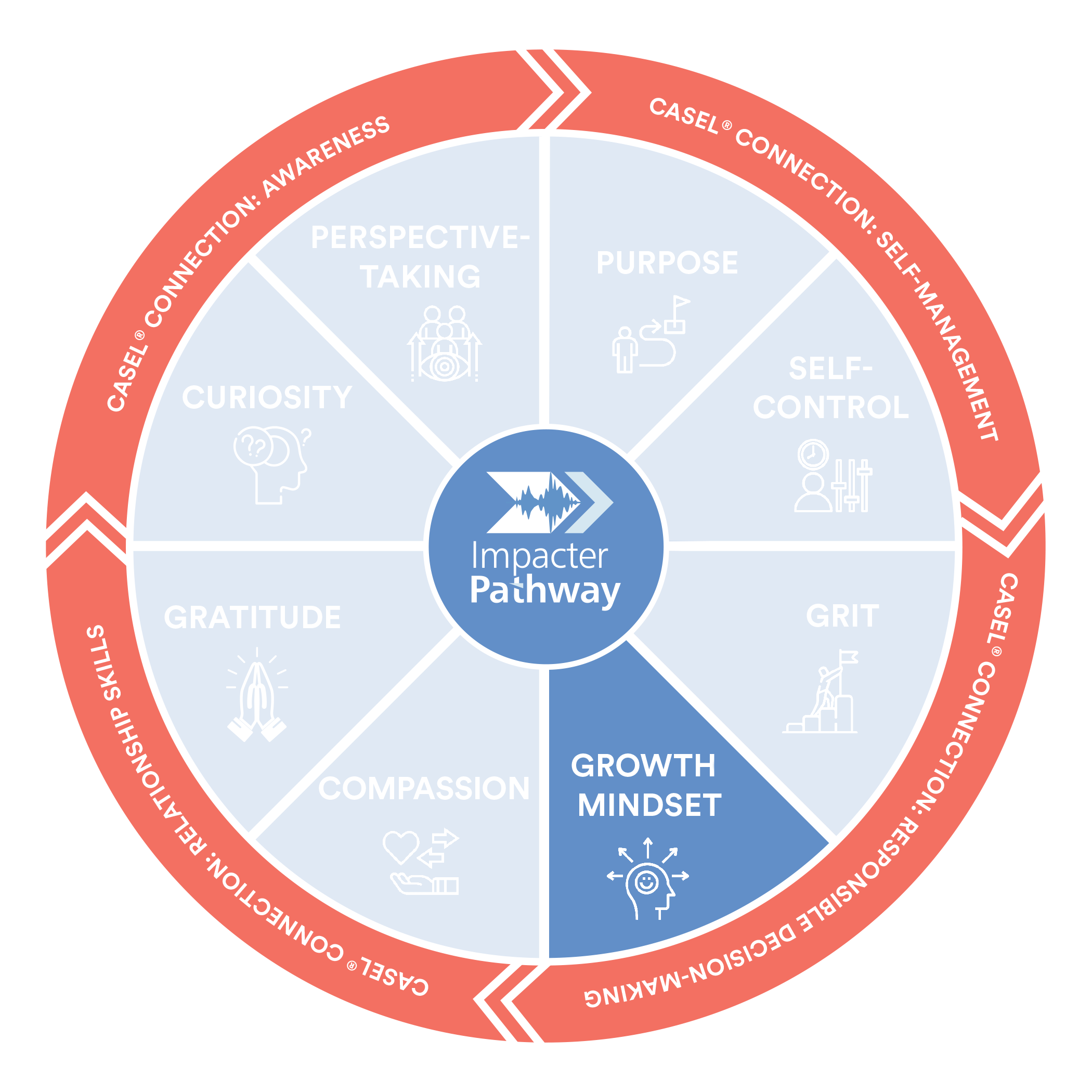Cultivating a Growth Mindset in Developing Impacters
Embracing Challenges and Learning from Failures for Personal Growth
Amelia
Last Update a year ago

A growth mindset is what it sounds like: a belief that your abilities can improve and grow. People who display a growth mindset accomplish more as a result of their sustained effort, learning, and persistence. This mindset is fundamental to personal development and success, fostering resilience, a love for learning, and a willingness to embrace challenges.
Impacter Pathway recognizes the importance of a growth mindset and integrates it as one of its core competencies. The program cultivates a growth mindset through activities that encourage exploration, reflection, and feedback. These elements combined create an environment that promotes continuous learning and improvement.
By designing activities that push students out of their comfort zones, Impacter Pathway helps students see failures and challenges as opportunities for growth rather than setbacks. Feedback is a crucial part of this process. Impacter Pathway uses a dashboard to provide insights and feedback, helping individuals identify areas of strength and improvement. This data-driven approach encourages a continuous learning cycle, fostering a growth mindset.
Here are some strategies to develop a growth mindset:
1. Embrace Challenges
Help students view obstacles as exciting opportunities for learning by modeling positive responses to difficulties. When students face tough problems, guide them to break down the challenge into smaller, manageable steps and celebrate each milestone they achieve.
2. Learn from Criticism
Teach students that feedback is a valuable tool for improvement by providing specific, constructive comments that focus on process rather than ability. Help them develop the habit of asking "What can I learn from this?" when receiving criticism and guide them in creating action plans based on feedback.
3. Celebrate Effort
Praise students' hard work, strategies, and progress rather than focusing on natural talent or intelligence. When acknowledging achievement, specifically highlight the steps they took to succeed, helping them connect their effort to their outcomes.
4. The Power of "Yet"
Guide students to view setbacks as temporary challenges rather than permanent failures by sharing examples of famous success stories that emerged from initial failures. Help them develop resilience by encouraging them to create new approaches when their first attempts don't succeed, and teach them to use phrases like "I can't do this yet" instead of "I can't do this."
5. Set Growth-Oriented Goals
Work with students to establish specific, achievable goals that focus on personal improvement rather than comparison with others. Help them track their progress over time and reflect on their learning journey, emphasizing how their abilities grow with dedicated practice and effort.
By focusing on this essential competency, Impacter Pathway equips individuals with the tools they need to develop a growth mindset, empowering them to embrace challenges, learn from their mistakes, and continuously strive for improvement.
Learn More About Growth Mindset:
What Having a “Growth Mindset” Actually Means
The growth mind-set: Why friends, family and work make a difference
Decades of Scientific Research that Started a Growth Mindset Revolution

